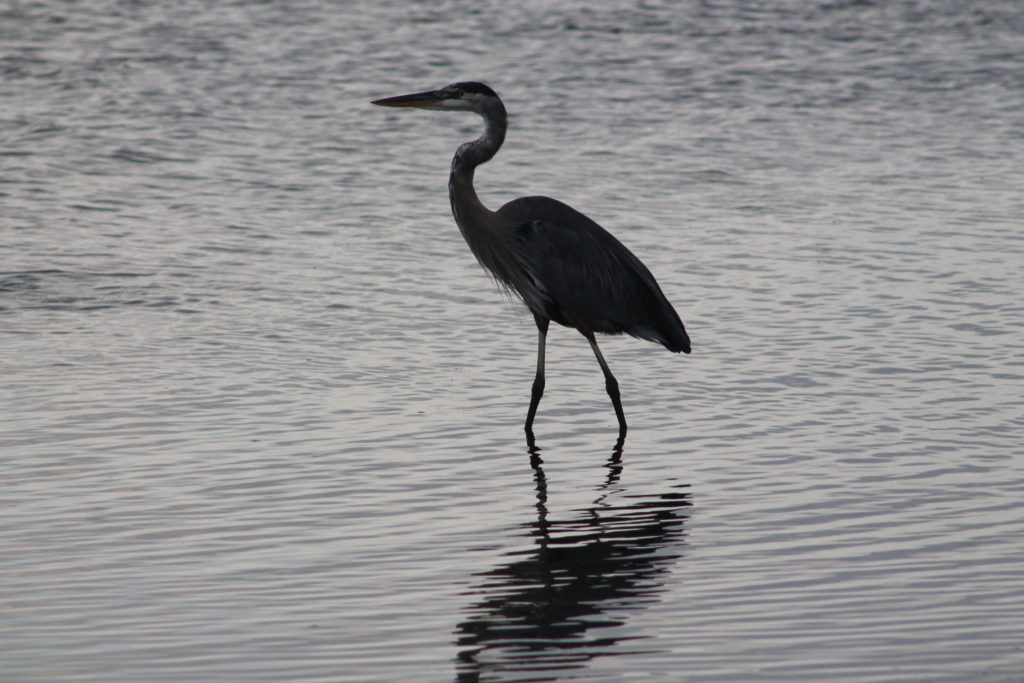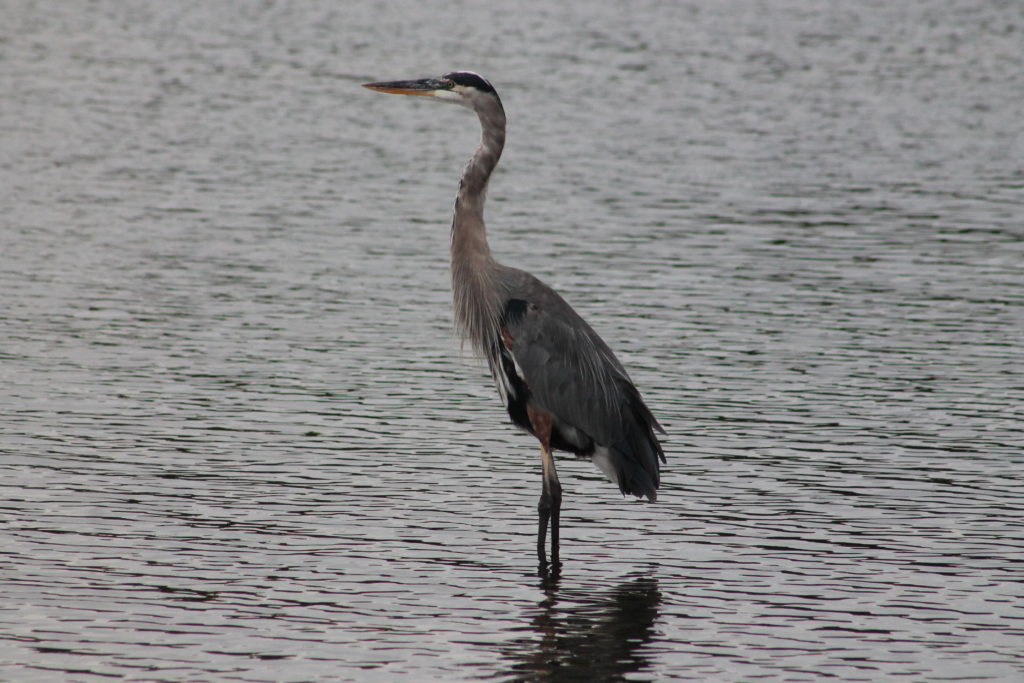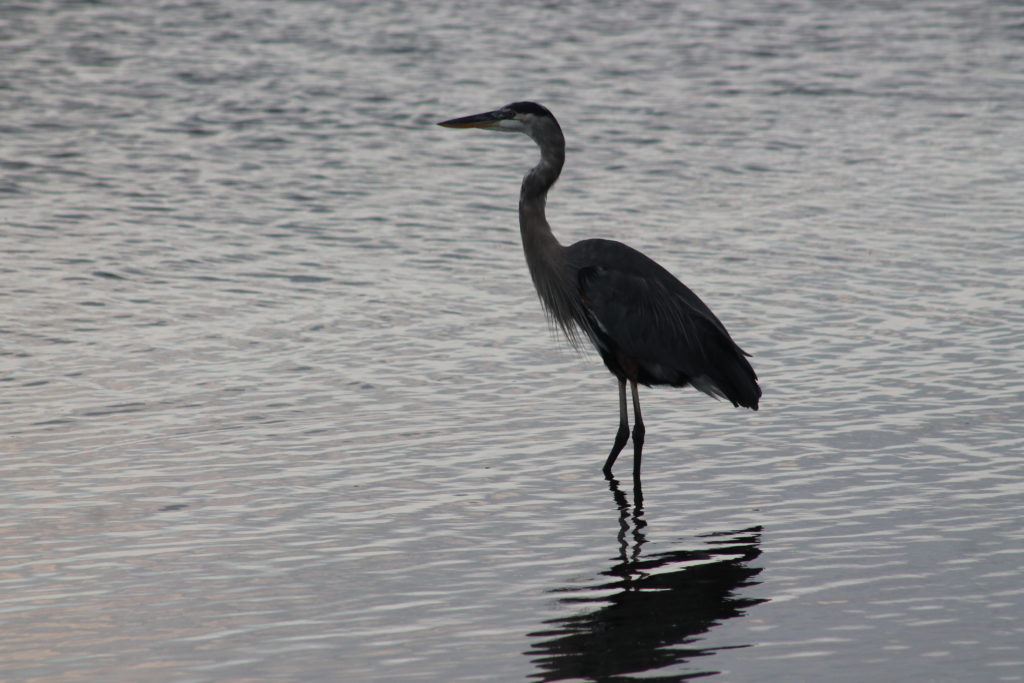According to Irish writer Robert Lynd, “In order to see birds it is necessary to become part of the silence.†Having walked the earth for well over a decade alongside the children I put here, this silence, in this last decade-plus, has been about as likely as an uninterrupted glass of wine, a short chapter read unpunctuated by a homework emergency, or a quick bathroom break without a knock on the door (still feels like it ain’t ever gonna stop). I can’t tell you how many times birds have landed on our decks or near us in the sand, only to be quickly scared away by the sounds of large voices in little bodies.
Nevertheless, the once small people are now the formerly small people, moving day by day closer to adulthood, so of late I am finding myself with the occasional moment of alone time. A few evenings ago, then, I was walking alone on a large walkway by the water when three people fell in behind me, one pulling a large array of fishing gear.
One of the men, from parts north of here, seemed disgruntled, and bemoaned the humidity. The man pulling the gear, however, noticed I had stopped and pointed my camera toward some birds, and apologized for making so much sound as he passed me. He and his female companion continued on and ended up much further down the walkway. Disgruntled found a sympathetic ear on the other end of his cell, apparently, and headed the opposite direction, away from the water. I was alone again, and in front of me stood this heron, unmoved by the recent human exchange.
I have a storied history with birds, dating back to the sixth grade and my would-have-been first croissant ever that came with a side of excrement. However, this history was complicated well over a decade ago with our move to an island, where, regardless of problematic micturition tendencies, birds’ pageantry is on full display over the Atlantic and around the surrounding waterways.
So our relationship is complex. I’ve settled with a guarded level of bird watching.
 That evening, after taking a few shots, I set my camera down, crouched, and watched the heron stare into the watery distance.
That evening, after taking a few shots, I set my camera down, crouched, and watched the heron stare into the watery distance.

 He moved his legs only slightly, sparingly shifting his weight. For a few minutes as I paused there by the water, the only sounds were the sounds of fish breaking the water’s surface and birds wandering through its shallow edges.
He moved his legs only slightly, sparingly shifting his weight. For a few minutes as I paused there by the water, the only sounds were the sounds of fish breaking the water’s surface and birds wandering through its shallow edges.
In Edith Wharton’s novel The Reef, one of the characters describes silence as being “as variously shaded as speech.†While Wharton wrote within the world of complex character relationships, I think shades of silence can extend into other worlds of experience as well. And that includes this one, as I knelt low to the water, seeing the bird and becoming part of one shade of silence.